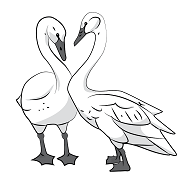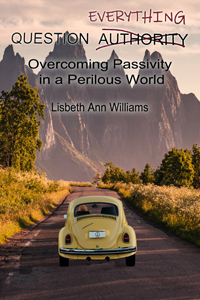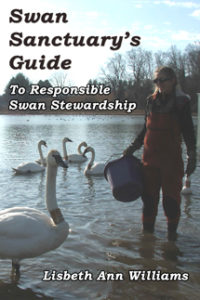After putting up a bird bath and bird feeders at my new home, the house finches were the first to find them. I soon saw a flicker at the suet and a few crows eating the cracked corn that I had sprinkled on the ground. I have also seen a hairy woodpecker a time or two and a couple of blue jays grabbed the peanuts that were meant for the squirrels. Unfortunately, within a week or so the European starlings invaded in large numbers, eating not only from the seed feeders, but also devouring the suet, eating seed from the ground, and making a filthy mess at the bird bath.
I miss the larger diversity of species that I commonly found in Virginia. I especially miss the cardinals and the mockingbirds. There are far fewer species here in this dry and windy area of Wyoming and the majority of birds that are found here, are the non-native starlings and the Eurasian collared doves. I am certain that more native and migrating species can be seen near the reservoirs and rivers; however, I am in town so I must be happy with whatever birds I can attract.
It has been common for many people to wage war on invasive species and those that are not to their liking. Some birders will kill sparrows that take over the nesting boxes meant for native bluebirds. I know that I could remove my feeders for a time and the starlings would move on, but then I would be depriving the smaller songbirds what they need to see them through the winter. While it is true that human beings have themselves introduced many of the non-native and invasive species, we seem to only exacerbate our mistakes when we try to “fix” them. Nature will find the perfect way to re-establish balance in our world. She has been doing this for eons. While survival of the fittest may not be what we would choose, as long as we think we know more than Mother Nature, we will persist in creating more problems.
I will continue offering food to songbirds and non-natives alike. They are experienced at working out their feeding times in and around that of the aggressive starlings. The smaller birds arrive earlier in the morning, taking advantage of the bath and feeders before the starlings return about an hour later. At some point I will probably hang the nyjer feeder for the goldfinches further away from the other feeders since the goldfinches tend to be shy and avoid the more aggressive birds. When spring arrives, I will plant more native shrubs and flowers in order to provide native food for native species. I will add an understory of evergreens to enhance the mature deciduous trees that are already here. With any luck, perhaps the starlings will go elsewhere.



